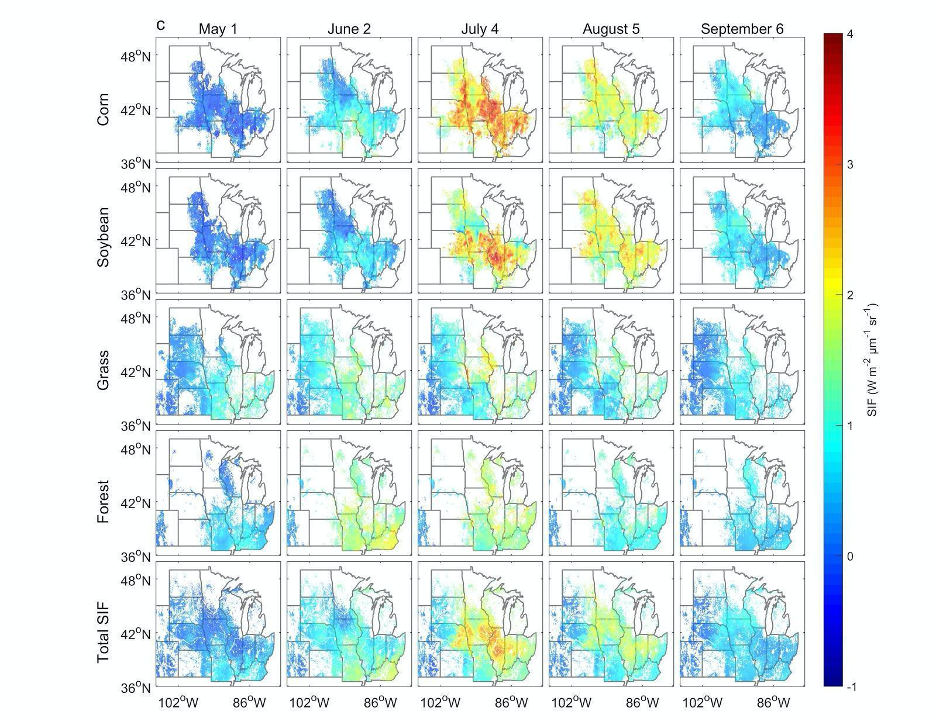The ORNL DAAC recently released the following new Carbon Monitoring System dataset from Wang, C. et al. (2021) :
High Resolution Land Cover-Specific Solar-Induced Fluorescence, Midwestern USA, 2018
This dataset provides estimated solar-induced chlorophyll fluorescence (SIF) of specific vegetation types and total SIF under clear-sky and real/cloudy conditions at a resolution of 4 km for the Midwest USA. These estimates are 8-day averaged daily means over the 2018 crop growing season for the time period 2018-05-01 to 2018-09-29. SIF of a specific vegetation type (i.e., corn, soybean, grass/pasture, forest) was expressed as the product of photosynthetically active radiation (PAR), the fraction of photosynthetically active radiation absorbed by the canopy (fPAR), and canopy SIF yield (SIFyield) for each vegetation type. Uncertainty of each variable was also calculated and is provided.
The NASA CMS program is designed to make significant contributions in characterizing, quantifying, understanding, and predicting the evolution of global carbon sources and sinks through improved monitoring of carbon stocks and fluxes. The System uses NASA satellite observations and modeling/analysis capabilities to establish the accuracy, quantitative uncertainties, and utility of products for supporting national and international policy, regulatory, and management activities. CMS data products are designed to inform near-term policy development and planning.
Additional data from CMS and other relevant links can be found on the ORNL DAAC's CMS Project Page.
Data Citation: Wang, C., K. Guan, B. Peng, C. Jiang, J. Peng, G. Wu, C. Frankenberg, P. Koehler, X. Yang, Y. Cai, and Y. Huang. 2021. High Resolution Land Cover-Specific Solar-Induced Fluorescence, Midwestern USA, 2018. ORNL DAAC, Oak Ridge, Tennessee, USA. https://doi.org/10.3334/ORNLDAAC/1813

